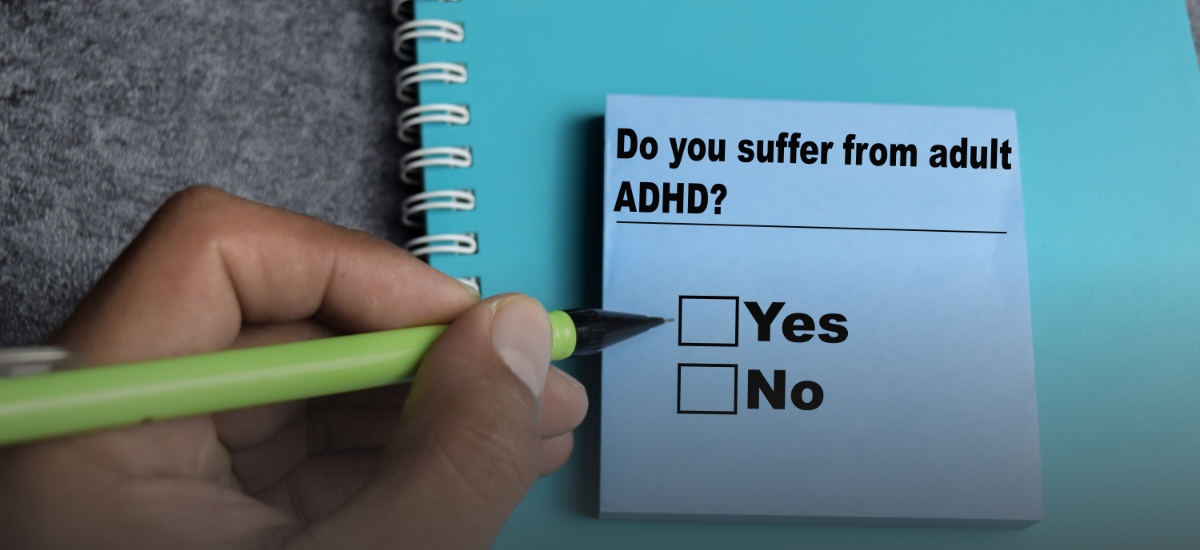Published on 6 November 2025
Once seen as a childhood disorder, ADHD is now being recognised among adults in Singapore, many learning in midlife why they struggled for years.
At a glance
-
ADHD is a lifelong neurodevelopmental condition, not just a childhood issue.
-
It affects about 5 to 8 per cent of children and 2 to 7 per cent of adults in Singapore.
-
Awareness is growing, with more adults seeking assessment after years of unexplained struggles.
A growing national trend
Across Singapore, a quiet shift is taking place. Professionals, parents and working adults who have spent years juggling deadlines, scattered thoughts and a constant sense of falling behind are now discovering that attention-deficit/hyperactivity disorder (ADHD) may be the missing link behind their lifelong struggles.
Once regarded mainly as a childhood condition, ADHD is now recognised as a lifelong neurodevelopmental condition. Growing awareness has led to more adults seeking assessments, often after years of unexplained difficulties. Clinicians are also reporting a steady rise in adult diagnoses as public understanding deepens and stigma begins to fade.
Expert insight: ADHD awareness widening beyond childhood
The trend aligns closely with global prevalence rates, said Dr Chee Tji Tjian, Senior Consultant, Department of Psychological Medicine, National University Hospital (NUH).
“While ADHD is most commonly identified during school-age years, there is growing recognition that this neurodevelopmental condition persists well into adulthood for many individuals,” he said.
Clinical data, he added, showed that ADHD diagnoses now span all age groups, with adult cases becoming increasingly common as awareness grows. This growing recognition has also deepened understanding of how the condition presents at different ages.
Understanding ADHD
ADHD is a neurodevelopmental condition that affects a person’s ability to focus, organise and regulate impulses and emotions. It typically begins in childhood and can persist into adulthood, influencing how individuals manage daily tasks, relationships and work.
Symptoms often fall into three categories: inattentiveness, hyperactivity and impulsivity. While some may struggle to concentrate or complete tasks, others may appear restless or act without thinking. The severity and combination of symptoms vary widely – one reason the condition can go unnoticed for years, particularly among adults.
How ADHD escapes detection
More Singaporeans are being diagnosed with ADHD well into adulthood, sometimes only in their 30s, 40s, 50s or beyond. Dr Chee explained that this often happens because symptoms were overlooked or misunderstood in childhood, when awareness of the condition was still limited and few parents or teachers recognised its varied presentations.
He said ADHD often shows itself in childhood in ways that are easy to miss, and those patterns frequently carry into adult life. Quiet, inattentive children, especially girls, are sometimes dismissed as “daydreamers” or “shy”. Some youngsters compensate by excelling academically, following strict routines or relying on extensive external support. Those coping strategies can mask their underlying difficulties for years and become unsustainable as adult responsibilities increase – leaving many adults diagnosed only later in life.
It is also common for parents to seek assessment themselves after their children are diagnosed. Seeing a child struggle with focus or organisation can prompt deep self-reflection, as adults recognise similar lifelong patterns such as chronic lateness, unfinished projects or feeling persistently overwhelmed.
“Observing their child’s struggles with focus, organisation or emotional regulation often triggers profound self-reflection,” said Dr Chee.
Why diagnosing adults is complex
Assessing ADHD in adults, however, is a detailed, multi-step process. Unlike childhood evaluations, which focus on current classroom behaviour, adult assessments rely on establishing a clear history of early difficulties and obtaining corroborative information from family members or school records. This developmental link is crucial, as ADHD cannot suddenly emerge in adulthood without earlier signs.
Clinicians must also rule out other psychiatric or medical conditions that can resemble ADHD, such as anxiety, depression, sleep disorders or stress-related issues. Many of these can cause inattention or restlessness that mimic ADHD symptoms. The relatively higher diagnosis rates in children compared with adults reflect this complexity. While genuine ADHD may go unrecognised for years, thorough evaluation also reveals when similar symptoms stem from other treatable conditions.
These comprehensive assessments are conducted across public healthcare centres in Singapore to ensure individuals receive accurate evaluations. While the process takes time, it ensures that those who need ADHD treatment receive appropriate care, and that others get help for the underlying issues causing their symptoms.
Relief and grief after a late diagnosis
For many adults, finally putting a name to their lifelong struggles can be both transformative and bittersweet.
“Many adults describe an overwhelming sense of validation and self-understanding – finally having a scientific explanation for lifelong struggles that they’d attributed to personal failings,” said Dr Chee.
This realisation often lifts years of self-blame and shame, opening the way to targeted interventions such as medication, coaching and workplace adjustments.
Treatment can markedly improve daily functioning, from managing deadlines to communicating better with partners and regaining confidence at work.
Yet the emotional impact is complex. Some adults grieve the opportunities lost to years of misunderstanding, recalling careers that stalled or relationships strained by symptoms they could not name.
“While late diagnosis cannot undo past experiences, it often marks a turning point towards healing, self-compassion and meaningful life changes,” said Dr Chee. “For many, diagnosis represents not an ending but the beginning of a more empowered, authentic and sustainable way of living.”
He noted that lasting progress depends on community support. Families, schools, workplaces and policymakers all play a part in early recognition and inclusive practices that allow people with ADHD to use their strengths – creativity, energy and resilience – to lead fulfilling lives.
|
Spotting the signs ADHD does not only affect children. Some adults live with it without realising why they struggle with focus or organisation. Common symptoms of ADHD in adults include:
|
In consultation with Dr Chee Tji Tjian, Senior Consultant, Department of Psychological Medicine, NUH.



